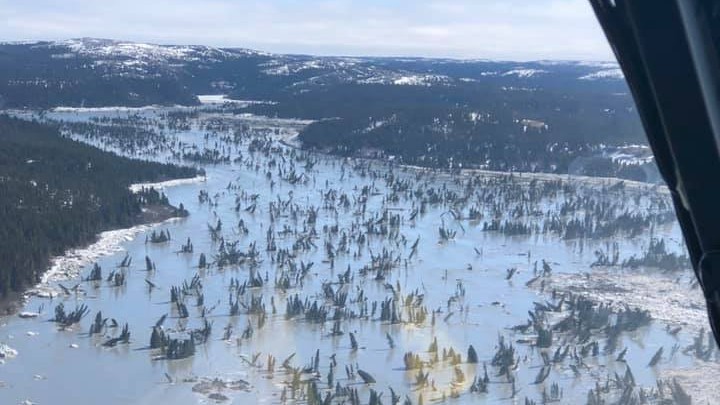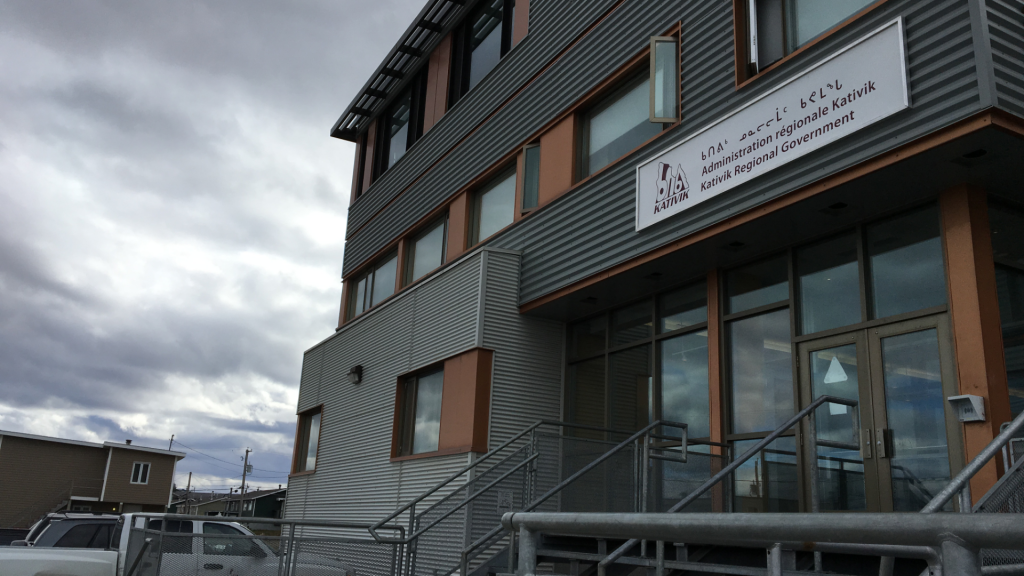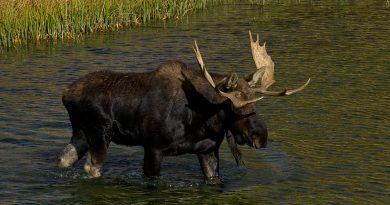Landslides deemed “significant” but pose no danger to village in Arctic Quebec

Two landslides near the village of Kuujjuaraapik in Arctic Quebec have been deemed “significant” by authorities but pose no immediate danger to the community.
The events happened on Thursday and affected a thick clay soil zone near the village.
Approximately 686 people live in Kuujjuaraapik, a fly-in, Inuit community on the eastern coast of Hudson Bay.
The municipal office in the village said no one was immediately available for comment on Monday, but authorities from the Kativik Regional Government (KRG), the administrative body in the Inuit region of Nunavik where Kuujjuaraapik is located, said community members’ main concerns were environmental ones.
“A considerable amount of debris descended into the Great Whale River approximately 9 kilometres upstream from the village,” KRG said in a news release, referring to the body of water near the village.
“The community feared that the debris could damn the river, which could easily break, creating a wave that would rapidly flood the community.”
Flooding unlikely, monitoring underway
The Kativik Regional Government’s Civil Security Department, the mayor, representatives of the village and experts from the University of Laval have all met to evaluate the event, KRG said.

They’ve determined that that the community’s location, 10 metres above water level, means major flooding is unlikely. The neighbouring Cree community of Whapmagoostui is also said to not be affected.
However, monitoring is still underway.
The ground surrounding the landslide area is still considered unstable and secondary landslides are still possible, KRG said.
Kuujjuaraapik’s mayor, Anthony Ittoshat, said he was reassured the situation was under control, but had urged Quebec’s Ministry of Transportation and the Ministry of Public Security to send “at least one expert” to the community this week to further evaluate the site, the news release said.
Quebec’s Ministry of Transportation and Ministry of Public Security did not respond before deadline on Monday to whether they’d be granting the request.
Write to Eilís Quinn at eilis.quinn(at)cbc.ca
Related stories from around the North:
Canada: Landslides on island in Arctic Canada up 6,000% since 1984, study finds, CBC News
Greenland: Greenland ice cores reveal historic climate clues, says study, Eye on the Arctic
Norway: New climate report predicts extreme warming for Arctic Svalbard by 2100, The Independent Barents Observer
Russia: The island that disappeared in Arctic Russia, The Independent Barents Observer
United States: Climate change a threat to bases across the U.S., Defense Dept. says, Alaska Public Media



